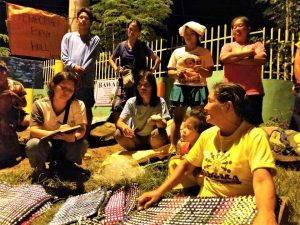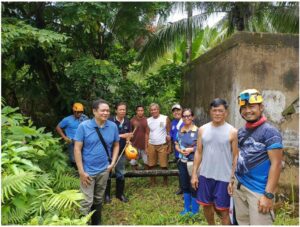ECOWEB, Inc. joins with the global community in the celebration of #WorldHumanitarianDay highlighting the contributions of extraordinary volunteers, professionals, and a community of people, #thehumanrace, sharing their valuable resources, time, knowledge, and skills in the delivery of emergency reliefs, shelters, protection, policy advocacy, health, and mental health care in conflict situations, during this COVID-19 pandemic, and in disaster-affected areas.
ECOWEB, Inc. works on nexus connecting its developmental, peace and climate programming to its humanitarian action through promoting survivors and community-led response (sclr) to crisis approach where people in a village– affected by disasters– organized themselves, assessed their context and situation, planned, and determined their basic needs to access or seek for humanitarian actions, and distributed equitably among themselves the available support.
In the last five years, ECOWEB’s humanitarian team with its local and international partners have been working with displaced communities in Marawi who were tremendously impacted by the siege; in earthquake-affected areas in the Caraga region and North Cotabato; in assisting economic recovery for hinterland and marginalized communities in different parts of the country severely affected by health protective lockdown against pandemic; and in several provinces in the Philippines devastated by typhoons, including typhoons Vinta (Tembin), Ompong (Mangkhut), and the recent super typhoon Odette (Rai) in 2021. In all these disaster contexts, it is the local leadership especially by the self-help groups of the affected of the disaster themselves that has made a great difference ensuring greater impact of ECOWEB’s humanitarian action.
For the recent #TyphoonRai, which affected 91 barangays from five regions, ECOWEB gathered international and local humanitarian support. Within the first 100 days, locally-led humanitarian actions enabled us to reach 11,307 households with 4,278 benefiting from group unconditional cash assistance and 7,029 from in-kind assistance and logistical support. Through self-help group leadership, the group cash assistance was translated into multipurpose uses addressing different needs and priorities set by the affected members of the villages themselves.
ECOWEB continues to advocate and practice community-development interventions which integrates disaster preparedness as crucial in the culture of governance while engendering community’s resiliency. As such, it works in collaboration and interfaces with local government and build partnerships with international, national and local actors.
It develops systems and practices with the affected communities/villages to create a model of humanitarian response that is locally-led, need-based and people-centered in approach to guarantee a participatory maximization of resources and measures in addressing complex problems being faced by the crisis-affected. #ItTakesAVillage to show that with the right and empowering support and trust of humanitarian agencies, crisis-affected can effectively lead and help themselves rise from impact of crisis however complex the problems they face.


